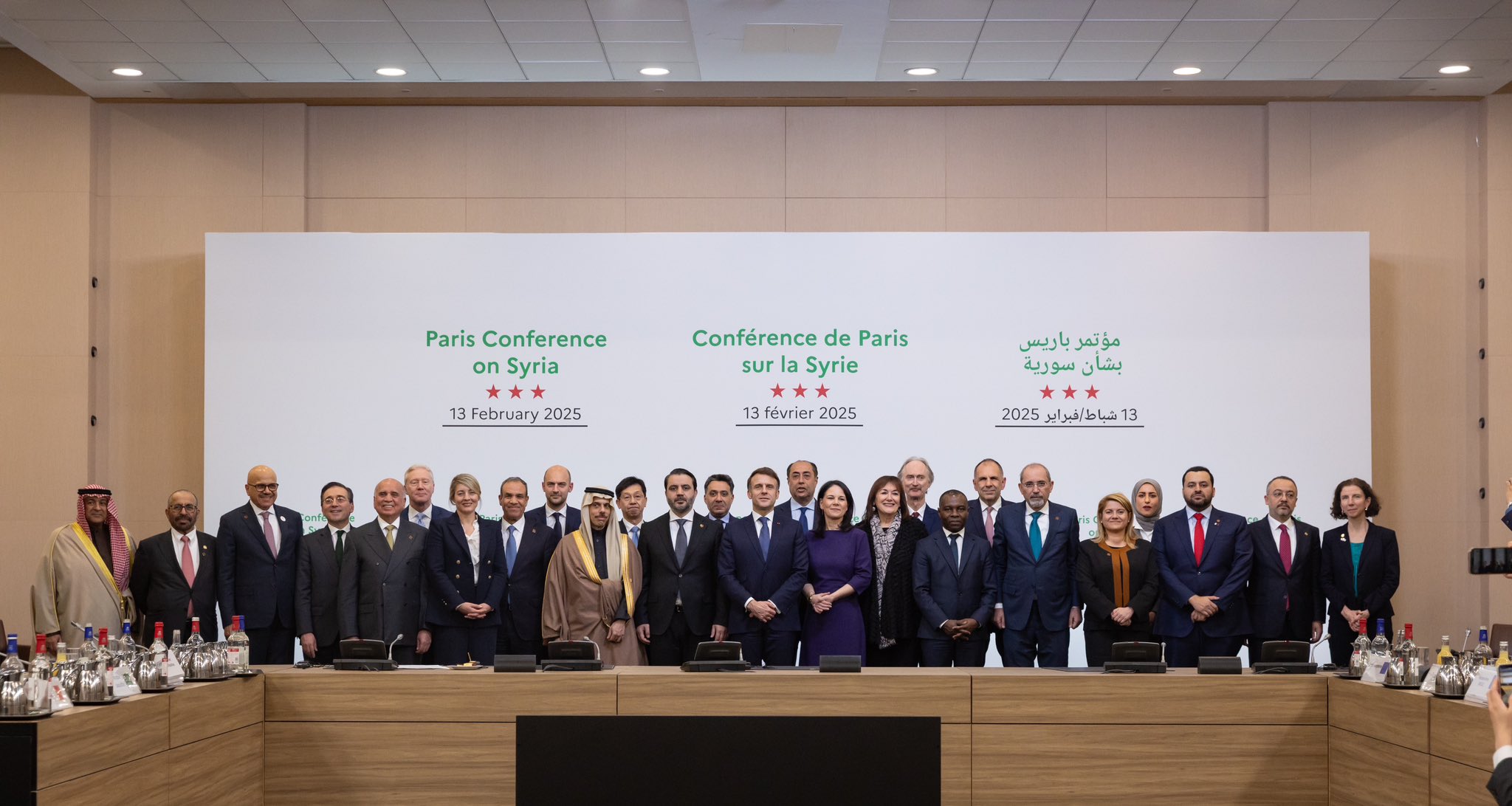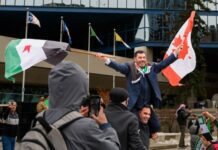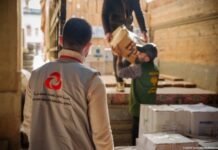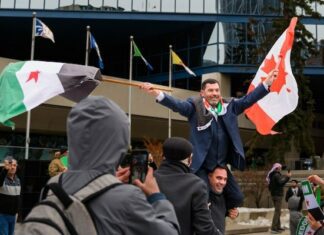
An international conference held in Paris on Feb. 13, reaffirmed support for Syria’s ongoing political transition, with leaders and diplomats from Arab and Western countries emphasizing efforts to stabilize the country following the fall of the Assad regime in December. French President Emmanuel Macron urged Syria’s transitional leadership to consider cooperating with the international coalition in combating ISIS, stressing that security remains the top priority to prevent Syria from becoming “a staging ground for militias linked to Iran.”
“We should not just tell you to fight terrorist groups,” Macron said. “We are ready to do this alongside you, and perhaps even more.” He called for the full integration of the PKK-aligned Syrian Democratic Forces (SDF) into Syria’s national military structure, arguing that their participation in Syria’s transition would enhance stability and counter-terrorism efforts.
The conference, attended by Syrian Foreign Minister Asaad Hassan al-Shaibani and representatives from Turkey, Saudi Arabia, Lebanon, and other nations, aimed to coordinate humanitarian and economic aid while addressing security challenges. The United States participated at a lower diplomatic level but did not sign the final joint statement, with sources indicating that the new US administration has yet to finalize its position.
Calls for Sanctions Relief & Humanitarian Aid
Discussions at the Paris conference focused on lifting certain economic sanctions on Syria, with France leading efforts to work with European counterparts on easing restrictions. French Foreign Minister Jean-Noël Barrot announced that Paris is “working toward a rapid lifting of a number of economic sanctions” while ensuring safeguards to prevent their misuse.
“We must allow aid to flow into Syria,” Barrot said. “Sanctions played a role in the downfall of the Assad regime, but they should not now be an obstacle to Syria’s recovery.” He highlighted that the EU has allocated more than 35 billion euros since 2011 for Syria and neighboring countries and is prepared to invest in reconstruction efforts.
France pledged 50 million euros in humanitarian aid to support Syria’s transition, with international organizations stressing the need for targeted funding in energy, transportation, education, and refugee return programs.
Regional Cooperation & Stability Efforts
Macron emphasized that Syria’s stability is crucial not only for the country but for the broader region. He called for a ceasefire across Syrian territories and an end to foreign interventions in the country’s south.
The conference also addressed Israel’s recent occupation and military actions in Syria, including its expansion into the buffer zone in the Golan Heights following the fall of the Assad regime. Arab and European diplomats condemned the move, with Egyptian and Qatari officials reaffirming the importance of Syria’s territorial integrity and sovereignty.
“The only way forward lies in a comprehensive political process,” Qatari Minister of State for Foreign Affairs Muhammad Al-Khulaifi said. “Syria must be protected from further destabilization.”
A Roadmap for Syria’s Future
A central theme of the conference was the need for transitional justice to ensure accountability for human rights violations. The Madaniya Foundation, a civil society group participating in the conference, presented recommendations including the re-evaluation of sanctions to target those responsible for past abuses while minimizing harm to civilians, allocating frozen funds for reconstruction, and prioritizing the economic empowerment of Syrian women.
Diplomatic sources described the Paris conference as a continuation of previous regional efforts, following meetings in Aqaba and Riyadh that discussed a UN-backed roadmap for Syria’s transition. The Paris gathering sought to create what one French official described as a “protective layer” around Syria to give the new leadership time to address internal challenges.
Macron confirmed that Syrian caretaker President Ahmad al-Sharaa has been invited to visit Paris soon, signaling growing diplomatic recognition of the new government. “This is an opportunity to build a Syria that directly contributes to regional stability and security,” Macron said.
While challenges remain, the Paris conference underscored the international community’s commitment to assisting Syria’s transition through security partnerships, humanitarian support, and diplomatic engagement.








